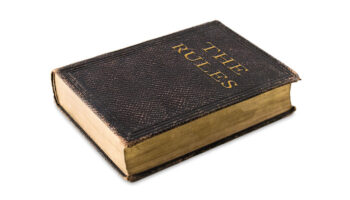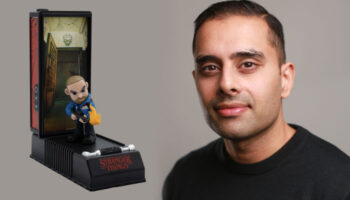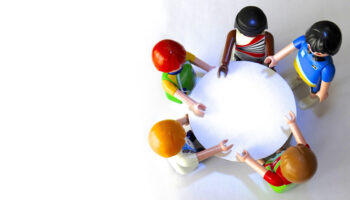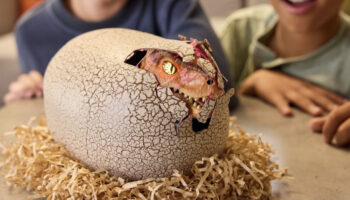It’s rare in toys and games… But is Hostile Attribution Bias affecting the way you work?

A good number of years ago, a stage performer angrily accused a client of mine – and, by extension, me – of stealing an idea for a promo photo. Why? Because we had unknowingly put out an image that looked passingly similar to theirs… And nothing we subsequently said could dent their absolute conviction that we were thieves first and liars second.
Eventually, we sent them a date-stamped file that outright proved we’d taken our photo first. While this did earn us a begrudging apology, I was still left exhausted and stunned. Why would anyone presume people to be liars and thieves before even considering other explanations?
Fortunately, people that think this way seem pretty rare in toys and games. If you cross paths with one, though, buckle up! They may have what psychologists call Hostile Attribution Bias. This means they’re prone to interpreting ambiguous words or actions as hostile or negative… Even when there’s very little or no evidence to support that interpretation.
Unfortunately, it’s very unlikely that they’ll be aware that they’re doing this. It’s a subconscious act; it’s part of their automatic worldview. Why do they do it? Opinion is divided: to some psychologists, Hostile Attribution Bias appears to be part of a defence mechanism: if you assume the absolute worst of everyone you ever meet, you’ll rarely be disappointed by them! In that respect, it’s a rather tragic thought…
However, others feel there’s another explanation… That those with Hostile Attribution Bias are unknowingly projecting their own traits onto others. In other words, if a person’s knee-jerk reaction is to accuse you of stealing an idea, it’s possible that they themselves are the kind of person that would steal ideas! The issue isn’t limited to ideation, of course. If a person is quick to believe that you’re two-faced, dishonest or passive aggressive, it’s possible that they possess those attributes. In other words, they imagine others are behaving as they might behave.

So: are there any telltale traits that suggest you’re dealing with someone with Hostile Attribution Bias? Yes and no! I’m going to suggest some below, but with an important caveat… I would never use this label to explain someone’s actions based on a one-off incident. It’s far fairer, kinder and wiser to give people the benefit of the doubt until one sees a cluster of related behaviours, or a repeated pattern of them.
With all that said, here are some of the traits that could be signs of a person exhibiting Hostile Attribution Bias. Again, I must stress that I wouldn’t jump to any conclusions if I once saw one of these behaviours… But people with Hostile Attribution Bias tend to:
Interpret neutral or innocuous actions as having negative intentions.
If you saw two people speaking quietly at a water cooler, for example, you wouldn’t automatically assume they were talking unkindly about you, would you? Someone exhibiting a Hostile Attribution Bias probably would.
Complain – disproportionally often – that someone has wronged them.
Since they often feel that others are acting against them, they tend not to give people the benefit of the doubt. This is a significant red flag if you know the third-party in the story… And the tale seems incongruent with their behaviour.
Express their views of others in aggressive or accusatory ways…
Even in everyday situations, those exhibiting Hostile Attribution Bias have views of the world that border on the paranoid. Consider the difference between these two thoughts:

Be hypervigilant or even paranoid…
Unsurprisingly, those exhibiting Hostile Attribution Bias may seem unable to relax in many situations… Professional and social alike. In extreme cases, it will seem almost paranoid. By way of example, are you reading this and thinking, ‘I wonder if this explains why some people seem so highly strung!’? If so, great! Someone with Hostile Attribution Bias, however, is more likely to be reading it and thinking: “That son of a bitch is talking about me!”
Seem implacable.
Those exhibiting Hostile Attribution Bias tend not to look for, and even reject, conciliation. Even when someone extends an olive branch, they may assume – with some certainty – that it’s a ploy or insincere gesture. Similarly, they tend to rebut alternative explanations for events, even when they come from a neutral party.
Create self-fulfilling prophecies.
If you knew for a fact that people were being hostile towards you, you’d inevitably act oddly around them. But if you only IMAGINE people are being hostile towards you, guess what? You would still act oddly around them! This is the most tragic thing about those with a Hostile Attribution Bias… Eventually, their suspicion, gossip, paranoia and accusations end up creating real feelings of hostility in others.
–
To stay in the loop with the latest news, interviews and features from the world of toy and game design, sign up to our weekly newsletter here

























